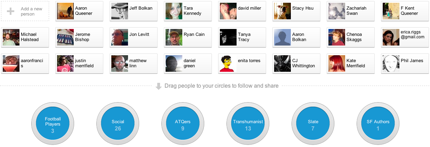Research | News
Rutgers Ocean Exploration Project Gets Support from Iridium
- By Dian Schaffhauser
- 03/13/14
A long-term project at Rutgers University to gather data about the earth's oceans through the use of autonomous underwater vehicles has received a financial boost. Iridium Communications, the company that has been supplying the communications network for transmitting that data, will now be supplying its airtime service connectivity for free as a sponsor of the program. The recipient is Rutgers' Coastal Ocean Observation Lab (RU COOL), which has been sending "gliders" out to sea since 2009 as part of its Challenger Glider Mission.
The vessels being used are bright yellow seven-foot Teledyne Webb-Slocum gliders, which collect data as they move through the ocean in a "saw-toothed" gliding path. Sixteen gliders are following 3,200- to 4,300-nautical mile routes around the five major ocean basins.
As Rutgers spokesman Ken Branson explained, each glider carries scientific instruments in its fuselage to capture data on location, temperature, salinity, currents and light. At pre-programmed times the glider "pops out of the water and phones home." The data it has been maintaining is uploaded via satellite link and awaits further instructions from a researcher or student worker back in RU COOL's center in New Brunswick, NJ.
| |

Each of Rutger's Challenger Gliders carries scientific instruments in its fuselage to capture data on location, temperature, salinity, currents and light as it roams the oceans in a saw-tooth pattern. Photo courtesy of Rutgers University Coastal Ocean Observation Lab. |
|
"The beauty of it is, it can be at sea, in rough conditions, and it can be controlled by somebody in New Brunswick with a cup of coffee and piece of pizza. It can give you a holistic view of a big patch of the ocean in near real time," said Branson.
The project is named after the HMS Challenger, a sailing vessel commissioned by the British government to perform scientific observations. During the ship's four and a half year journey during the 1870s, its officers, crew, and civilian staff and scientists traversed nearly 69,000 nautical miles.
"The technology underpinnings of this mission are truly enabling our researchers to gather more and better data than ever before, enhancing the basis of knowledge for future generations," said Scott Glenn, co-leader of the mission and professor of physical oceanography at Rutgers. "Part of our goal with this mission is to increase global ocean literacy. This expanded dataset will enable students and researchers to focus on the science of their local waters, as well as be a part of a global research community, all working toward understanding the ocean's role in regulating the changing climate and weather."
About the Author
Dian Schaffhauser is a former senior contributing editor for 1105 Media's education publications THE Journal, Campus Technology and Spaces4Learning.

